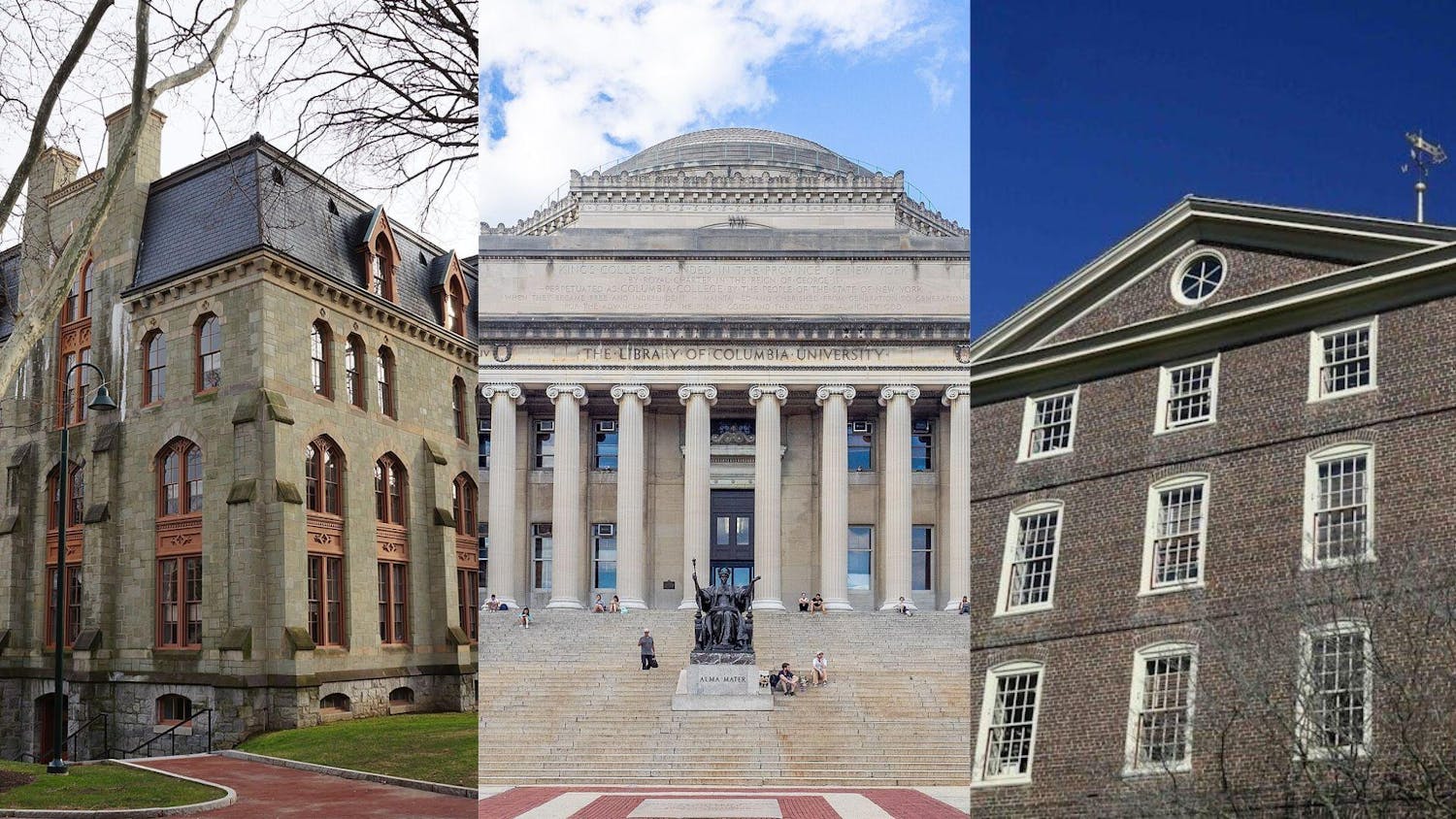When Ahmed Shawki MA '77 took his 37-year-old nephew to a protest in Cairo at the onset of the Egyptian revolution, his sister chastised him for endangering her son. But following a battle between protestors and government forces for control of Tahrir Square, she began exhorting her son to put himself in the line of danger to bring medical supplies to wounded protestors.
Shawki — speaking to an audience of about 150 in Barus and Holley 168 last night — cited his experience as an indicator of the newfound dignity and political consciousness of the Egyptian people since they rose up and overthrew the 30-year dictatorship of Hosni Mubarak earlier this year.
"We have entered a whole new world," Shawki said of the revolution's repercussions across the region. He described a paradigm shift in the political consciousness of Egyptians and in Americans' views of Arabs over the past month.
Shawki said Mubarak's previously reliable tactics for controlling the Egyptian populace ceased being effective in the face of protests of unprecedented size. The police did not expect tens of thousands of protestors to come to Tahrir Square Jan. 25 and were unable to repress such a large crowd. After Mubarak withdrew police from Cairo and Alexandria in the hopes of plunging the cities into chaos, the move simply "regenerated organization of a different type" in the form of civilian neighborhood watches, he said.
"Egypt, the country, is rising," Shawki said. He described the elation of "a sea of humanity demanding the end of a regime and actually achieving it."
Shawki, who was in Egypt as the protests came to a head, said he observed Egyptians "beginning to feel that they matter" and that with this newfound dignity came the impulse to act.
Before the talk, Shawki told the The Herald that growing self-respect also accounts for the peaceful nature of the protests. Stories abounded of Christians protecting Muslims at prayer, whereas reports of sexual misconduct during the unrest were virtually absent. "When people are stepped on and have no self-dignity, they can step on the person immediately underneath them," he told The Herald. It makes sense that a democratic movement "took up the rights of other oppressed groups," he said.
Touching on American views of the Middle East, Shawki told the audience recent events challenged old stereotypes.
"Islamophobia has taken a most severe blow," he said, and Americans who believed that Arabs were not ready for democracy have been forced to reconsider their assumptions. He said he hoped the revolution would reduce "all the shit" directed at Arabs and Muslims in America.
"But I don't think it will," he added.
"The lid has been taken off American foreign policy," Shawki said, adding that many Arabs were surprised that Western powers "stood by and defended the old regimes" despite self-avowed support of democracy. But Egyptians also recognize that, while American foreign policy may have been pro-Mubarak, the American people supported the uprising. In the same vein, American reporters distinguished between the actions of violent government thugs and those of peaceful protestors.
Shawki also described the vast economic inequality that proliferated during Mubarak's rule. He hailed the uprising as a working-class movement, saying the "real politics of socialism are making themselves relevant again to a whole new generation."
During the question and answer session, Dia Barghouti '12 said that "this is the first time that a corrupt post-colonial government has been overthrown, and may it happen in the entire Middle East."
An older American woman wearing Islamic dress, who said she had married a poor Egyptian man and spent the past 13 years living in Cairo, criticized Shawki, saying he was ignoring the human costs of the revolution. She challenged the assertion that poor Egyptians uniformly opposed Mubarak, adding that her sister-in-law, who lives on $30 a month, called her crying during the uprising, saying "Wendy, why are they doing this? We love (Mubarak)."
"Now we don't have security in the region," she said. "Women (are) being raped in broad daylight in Tahrir square."
Shawki warned against prioritizing stability over justice, saying that Italians appreciated Mussolini because he made the trains run on time. Though not all Mubarak supporters are thugs, the popular nature of his overthrow is "absolutely undeniable," he said.
Shawki reminded the audience that the "end of Mubarak does not mean the end of the regime," because the grievances that fuelled the revolt have not been resolved. There is a "flowering" of new movements, but it remains unclear what the new Egyptian state will look like, he said.
Still, he added, "What Tunisia and Egypt have done is indelible in the memories of those who have witnessed it."




